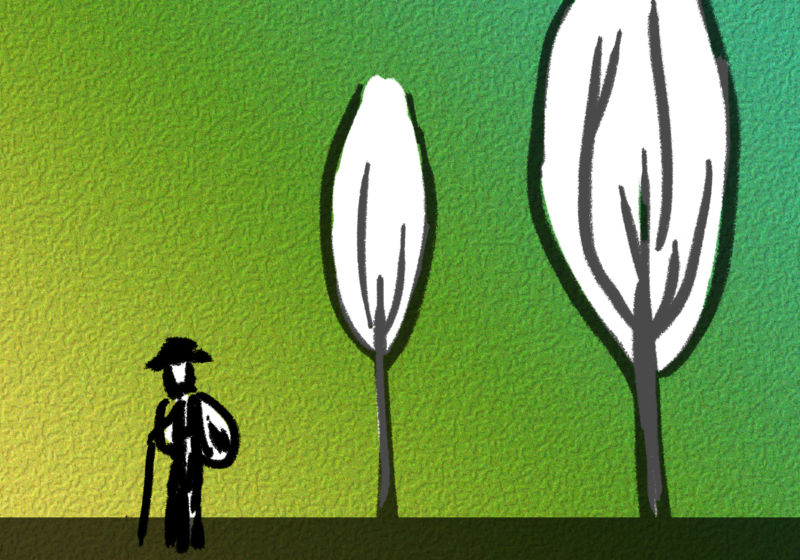I went to bed on a regular Wednesday night, eager to wake up the next morning and watch a new episode of Freeform’s “Good Trouble.” The show airs at 10 p.m. every Wednesday night, and unlike most college students, I find it difficult to stay awake into the wee hours of the night. However, the next morning, I scrolled through Instagram and saw a post from Maia Mitchell, one of the stars of “Good Trouble” herself. It said not to read if you hadn’t seen the episode from the night before — there were spoilers ahead.
But something about this post struck a chord with me. I recognized its format — simple white background with black lettering in several paragraphs as if taken from a notes app — indicating an apology, a departure, or a death. So, I had to read on.
Maia wrote that she was lucky enough to find a family first in “The Fosters,” and then in its spinoff, “Good Trouble.” However, “for quite some time [she had] suppressed an undeniable gravitational pull to return home to Australia and be closer to [her] nearest and dearest.” And with this pull, Maia found it was “time to start a new chapter and bid farewell to ‘Good Trouble.’”
It was just an Instagram post from an actress I had never met; it wasn’t a friend, a relative, or even an old classmate. I should have been able to skim over it and move on. And yet, I felt a visceral twinge. A sadness. A disappointment. A feeling as if someone I had known deeply, like one of my dearest friends, was leaving me.
I first saw Maia on Disney Channel — singing and dancing with Ross Lynch in “Teen Beach Movie” and palling around with Debby Ryan in “Jessie.” I honestly didn’t think much of her then; I was still caught up on the former Disney stars — Miley, Demi, Selena — that my childhood revolved around. I encountered Maia again when I happened upon “The Fosters” during one of my Netflix scouring sessions.
I was in the beginning half of high school, navigating a discouraging social atmosphere with flighty friends, fragile self-esteem, and superficial academic standards being shoved down my throat at a moment’s notice. No one could blame me for seeking an escape into teen television.
On “The Fosters,” Maia portrayed Callie Jacob: a troubled foster kid with a juvie rap sheet and a younger brother she was desperate to save from the foster system. Through many pitfalls and struggles, Callie is adopted by Lena and Stef Foster, and with their three children (Brandon, Jesus, and Mariana) alongside her brother Jude, they become Callie’s family. The show went through a lot of shocking — and admittedly a little messed up — highs and lows across five seasons. But Callie always persisted, and I continued to have hope for her and a desire to see where she went in life.
Through everything, we were always reminded she wasn’t disposable — no one should be.
I’m not a foster kid. I’ve never been to juvie. I’m an only child and I’ve been lucky a lot of my life. But I understand bouncing from home to home and never quite knowing when and where you’ll land finally — for good. It’s the blank slate, new-girl syndrome I grew numb to as a military child. I understand the trauma one takes from one relationship — one friendship — one family into the next. I understood Callie and seeing even the tiniest piece of me in her story, I couldn’t help but keep watching her until the end of “The Fosters,” and then onto “Good Trouble,” because I wasn’t ready to let go. Hers and mine are not the same story; and though hers is fictional, I know it represents a lot of teenagers who are facing a brokenness they already feel is so inescapable in their young lives.
Maia’s departure from “Good Trouble” comes with the departure of Callie too. After having struggled with finding her purpose as a lawyer, Callie accepted a job at the ACLU in Washington DC — far away from the show’s homebase in California. Callie was able to leave the show’s narrative arc, while staying true to her character’s pursuits. But this didn’t make it any easier to see her go.
I’ve watched her on screen since I was 14 years old — being 20 now, that seems so long ago — but the experience of being a teenager still feels so alarmingly fresh. Seeing Callie move on makes me realize how much she’s grown; how much I’ve grown. It’s sad and weird to acknowledge this and be forced to say goodbye. Goodbye to Callie and goodbye to parts of myself that were present in my teen years but have been slowly deteriorating ever since — good and bad.
Sure, I’ve watched countless shows end with characters I’ve loved: Hannah took the wig off, Alex became the family wizard, Teddy made her last video diary. In a way I hated seeing those characters grow up, because the feeling was too inaccessible for me to fully grasp — the generational gap was too large.
As I got older and I was watching teen protagonists, as I was a teen myself, the goodbyes began to hurt a little more: Rory in “Gilmore Girls,” Tara in “Dance Academy,” and Bay and Daphne in “Switched at Birth.” Their stories may have ended, but I still hold each of them close. I’m not quite ready to let any of them slip my mind just yet.
If I still have hope for them, then I still have hope for myself too and can be reminded of just how far I’ve come. So, while I only wish Maia the best in her new chapter, I’m in no rush to forget Callie and all she’s done for me.

